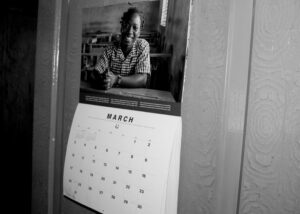‘A little humility is in order’ Re: “Holy contradictions,” Sept. 16, page 4.
I was raised as a Catholic, but for years have accompanied my wife to her Mennonite church.
I hope that I am not the only reader who found Will Braun’s feature to be harsh and uncharitable. Here is a partial list of his descriptions of the Catholic church: outlandish contradictions, backwardness, pomposity, theological flimsiness and human atrocities. He also repeats the word “papist,” which dictionaries describe as being a disparaging term for a Roman Catholic.
I think that one should be careful in describing anyone else’s theology. Writers such as Richard Dawkins, Sam Harris and the late Christopher Hitchens label anyone who believes in the Apostles’ Creed—which would include Mennonites as well as Catholics—as a naïve fool or worse.
Sadly, as Braun recounts, the Catholic Church has much to answer for, for its inexcusable residential schools project and the treatment of aboriginal children. It is also true that Mennonites are among those who live and prosper on land that was taken unjustly from aboriginal people. I would think that at least a little humility is in order. Dennis Gruending, Ottawa
Seeking the mystery of God’s grace
Re: “Holy contradictions,” Sept. 16, page 4. I have read this piece by my friend Will Braun a number of times and agree with much of his essay regarding the Catholic Church. I was struck by the similarities between his description of the Catholic Church and the relationship between God and his people in the Old Testament.
Since he assures me that he is not about throwing stones or about picking splinters out of the Catholic eye, or, for that matter, out of the Mennonite eye, I wondered what is the mystery he speaks of. After a sleepless night thinking about this mystery and wondering what point he was trying to make, I wondered if he was shining a light on the mystery of God’s grace.
I opened Beyond Words by Frederick Buechner, a good Presbyterian, and was struck by this statement: “A crucial eccentricity of the Christian faith is the assertion that people are saved by grace. . . . There’s no way to earn it or deserve it or bring it about any more than you can deserve the taste of raspberries and cream.”
The church—that is God’s people—is made up of fallen people who, even with the discipline and wisdom of community, get things wrong. They did in the time of the prophets, they did in the early church and we continue in the modern church. How else can we explain the inconsistency between confessions of faith and our relationship to God’s created world, between our words and our lifestyles, between the concept of Christian unity and the many divisions of the church?
Perhaps we just need to acknowledge our propensity to get things wrong, both individually and corporately, and accept the pure grace offered by Jesus and stop flagellating the church.
So thanks for the sleepless night and the mystery reminding me, and us, of God’s grace seen in the Catholic Church, in the Protestant church and yes, in the Mennonite church! God is making all things new and, as the 14th century mystic, Julian of Norwich, assures us: “All shall be well, and all shall be well and all manner of thing shall be well.” That, to me, is mystery enough! Don Dyck, Winkler, Man.
Braun presents an imaginary Catholic Church
Re: “Holy contradictions,” Sept. 16, page 4.
As a Catholic, I had a hard time recognizing my faith as it was described by Will Braun: backwards, contradictory, pompous and, apparently, indifferent to clerical pedophilia and the safety of our children.
If the Catholic Church really were the bizarre place described in this article, it would be a mystery as to why it even had one member, never mind 1.2 billion. To me, the obvious explanation is this: the Catholic Church he describes exists only in his imagination.
I am a convert to Catholicism, and can assure you that most Catholics are not blind followers. We certainly aren’t indifferent to the problems in our church. However, the church described in this feature—where women who have abortions are “automatically” excommunicated, where the “unworthy” are excluded from the eucharist—frankly, that all sounds like the slander Catholics are used to from evangelical fundamentalists and the secular press.
Catholics, just like Mennonites I presume, are members of our church because we have encountered Christ powerfully through her: in our brothers and sisters, in our clergy, our art, our liturgies, even in our dogmas. We believe in Christ’s message of hope to the weak and suffering of the world. By grace we try to pattern our lives on his example.
My prayer would be that readers would extend a little scepticism regarding Braun’s understanding of what Catholics believe and do. For those who are curious, the Vatican publishes the full catechism of the Catholic Church online at vatican.va/archive.
There is probably still much there to scandalize non-Catholics, but at least all of it will be a truthful reflection of Catholic belief and practice. Martin Willms (online submission)








Leave a Reply
You must be logged in to post a comment.